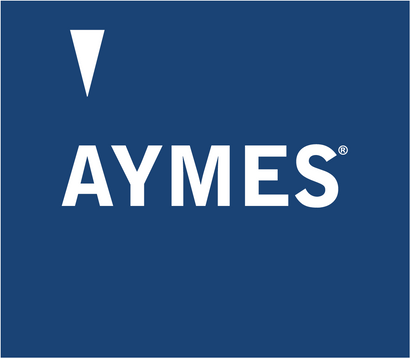Introduction
The European Society for Clinical Nutrition and Metabolism (ESPEN) have recently published a set of Hospital Nutrition Guidelines. These new guidelines provide evidence-based recommendations regarding the prescription and indications of hospital and therapeutic diets. They also cover the monitoring of food intake in hospitals, rehabilitation centres, and nursing homes.
The objective of the guidelines is to increase awareness amongst healthcare professionals (HCPs) of the significance of hospital food in a patient's recovery. It is hoped that this will help to reduce the risk of malnutrition and its related complications by ensuring that all patients’ nutritional requirements are met with hospital food provision.1
The British Dietetic Association (BDA) previously published a document (‘The Nutrition and Health Digest: Improving outcomes through food and beverage services’) providing guidance on best practice for the provision of nutrition in various health settings.² However, the ESPEN guidelines on nutrition in the hospital setting are a first of its kind at a European level. 1,2
Background to the guidelines
ESPEN has acknowledged a lack of consensus on the provision of hospital food, with practices differing amongst care-settings. Audits have revealed that hospital food is often uneaten, and therapeutic diets (e.g., gluten-free, texture-modified) are often low in energy (which is associated with an increased risk of malnutrition).1,2 Furthermore, prescriptions of high-energy, high-protein hospital diets are commonly made without the evaluation of nutritional status.1
The British Association for Parenteral and Enteral Nutrition (BAPEN) conducted a recent national survey of malnutrition and nutritional care. They found that 40% of adults screened (n=1,183) were at risk of malnutrition.3 Of those at risk of malnutrition, 38% were in a hospital setting, and 39% were living in the community.3 These statistics emphasise the need for malnutrition screening to be completed on admission to hospitals to identify high risk individuals, and to ensure that they receive adequate nutrition and hydration during their stay.
Meeting a patient’s nutritional requirements is essential for the prevention and management of malnutrition, creating a need for structured catering guidelines across care-settings. Consequently, ESPEN have developed clear hospital nutrition guidelines aimed at HCPs working across various care settings. The guidelines emphasise the importance of nutritional assessment as a prerequisite for the prescription of an appropriate and effective diet.1
Overview of the recommendations relating to protein intake
The guidelines provide 56 recommendations relating to hospital food provision; however, this article will focus solely on those relating to protein intake.
-
Recommendation 12: ESPEN advise that nutritional intake should be monitored every three to five days and effectively adapted according to disease, oral intake, and the patient's acceptance.1 If dietary modifications are insufficient to cover energy and protein needs, medical nutrition (e.g., oral nutritional supplements (ONS) should be provided.1
-
Recommendation 14: Patients with or at moderate/high risk of malnutrition should be provided with a 'hospital diet' (e.g., a fortified diet with additional energy and protein).1 Some of the evidence that recommendation 14 is based on comes from research which found that in malnourished cancer patients, increased energy and protein intakes were strongly associated with improved quality of life, functional score, hand-grip strength, symptoms and performance scores.4
-
Recommendation 15: ESPEN advise that a fortified ‘hospital diet’ should provide 30 kcal/kg actual bodyweight (BW)/day and at least 1.2 g/kg actual BW/day of protein.1 The hospital diet is aimed at adults aged 65 years and over or patients with an acute or chronic disease (who have or are at risk of malnutrition and/or have disease-related metabolic stress).1 The recommended level for protein intake varies, but most studies recommend between 1.0-1.5 g/kg BW/day.5,6
-
Recommendation 18: It is recommended that snacks between meals are part of standard hospital food service to help patients to meet their nutritional requirements.1 Research has shown that patients who consumed high-energy, high-protein hospital snacks were more likely to meet nutrient standards.7
Implications for clinical practice
The ESPEN guidelines on hospital nutrition place great emphasis on the importance of nutrition as part of a patient's treatment. The guidelines stress that the prescription of hospital and therapeutic diets must be accompanied by dietetic support, and this should be regularly evaluated.1
It is encouraging to see that these guidelines raise awareness of the role of the dietitian within the acute setting, whilst providing objective standards for clinical and catering dietitians to refer to in order to improve food service within care settings.
It is hoped that the implementation of these guidelines will lead to improvements in hospital food provision, which may ultimately help to reduce the prevalence of malnutrition in hospital care settings in the long-term.
- ◄References:
-
- Thibault R et al. ESPEN guideline on hospital nutrition. Clin Nutr. 2021 Dec;40(12): 5684–5709.
- The British Dietetic Association [Internet]. The Nutrition and Hydration Digest: Improving outcomes through food and beverage services. [2019; cited 2022 January 03]. Available from: https://www.bda.uk.com/uploads/assets/c24296fe-8b4d-4626-aeebb6cf2d92fccb/NutritionHydrationDigest.pdf
- The British Association for Parenteral and Enteral Nutrition (BAPEN) [Internet]. National Survey of Malnutrition and Nutritional Care in Adults UK Malnutrition Awareness [2020 October; cited 2022 January 03]. Available from: https://www.bapen.org.uk/pdfs/reports/mag/national-survey-of-malnutrition-and-nutritional-care-2020.pdf
- Leedo E et al. The Effect of a Home Delivery Meal Service of Energy- and Protein-Rich Meals on Quality of Life in Malnourished Outpatients Suffering from Lung Cancer: A Randomized Controlled Trial. Nutr. Cancer. 2017 Feb 17;69:(3):444-453.
- Ziylan C et al. Protein-Enriched Bread and Readymade Meals Increase Community-Dwelling Older Adults’ Protein Intake in a Double-Blind Randomized Controlled Trial. J Am Med Dir Assoc. 2017 Feb 01;18(2):145-151
- Stelten S et al. Protein-enriched ‘regular products’ and their effect on protein intake in acute hospitalized older adults; a randomized controlled trial. Clin Nutr. 2015 Jun 01;34(3):409-14.
- Pullen K et al. Are energy and protein requirements met in hospital? J Hum Nutr Diet. 2018 Apr;31(2):178-187.



